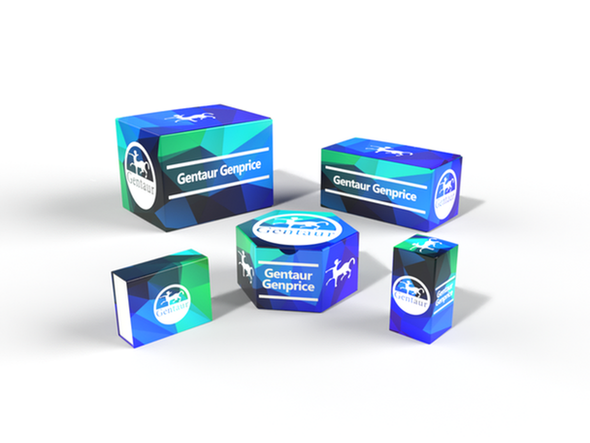Description
Control Normal llama IgG, Whole Molecule (FITC) | XR-8005 | Gentaur UK, US & Europe Distribution
Host : Llama
Reactivity : N/A
Tested Application : E, WB, IF, Flow
Application: Llama IgG Fluorescein can be utilized as a control or standard reagent in SDS, Western Blotting, Flow Cytometry, Immunofluorescence, and FLISA experiments. Specific conditions for reactivity should be optimized by the end user.
Isotype: IgG
Physical State: Lyophilized
Buffer: 0.02 M Potassium Phosphate, 0.15 M Sodium Chloride, pH 7.2, 0.01% (w/v) Sodium Azide
Concentration: 1 mg/mL
Storage Condition: Store vial at 4˚C prior to restoration. For extended storage aliquot contents and freeze at -20˚C or below. Avoid cycles of freezing and thawing. Centrifuge product if not completely clear after standing at room temperature. This product is stable for several weeks at 4˚C as an undiluted liquid. Dilute only prior to immediate use. Restore with 100 uL deionized water (or equivalent)
Background: Comparative studies of old world camelids (Camelus bactrianus and Camelus dromedarius) and new world camelids (Lama pacos, Lama glama and Lama vicugna) have shown that heavy-chain-only immunoglobulins represent between 35% - 70% of total IgG in the sera of all species. Such antibodies are homodimers of heavy chains that lack the CH1 domain of conventional antibodies and therefore do not interact with light chains, exhibiting a lower molecular weight ~100 kDa. In llama and all other species of camelids, these heavy-chain-only immunoglobulins belong to the IgG2 and IgG3 subclasses of gamma chain antibodies. All gamma chain camelid antibodies exhibiting the more conventional assembly of two light and two heavy chains with molecular weight ~150 kDa, belong to the IgG1 subclass.






